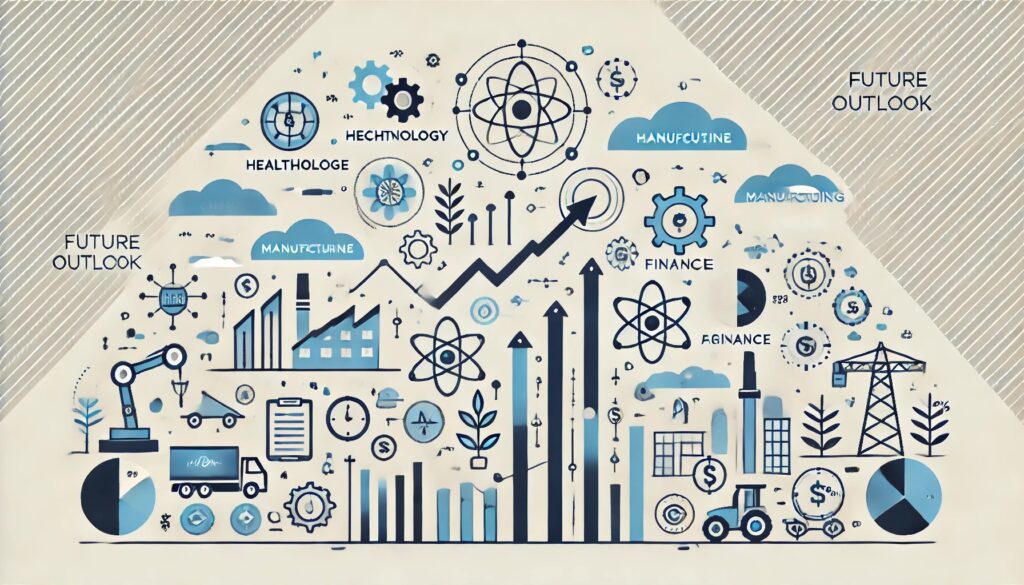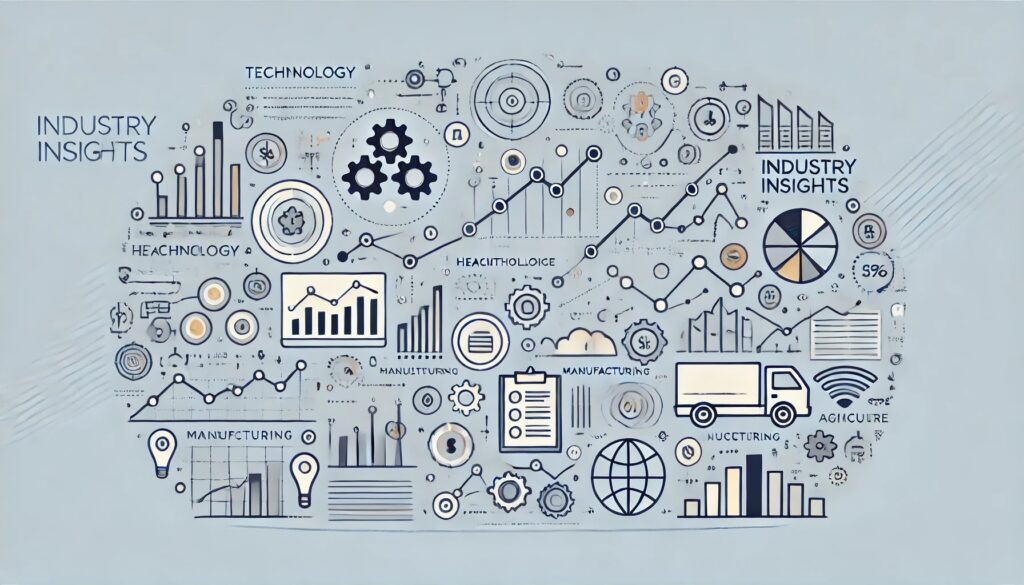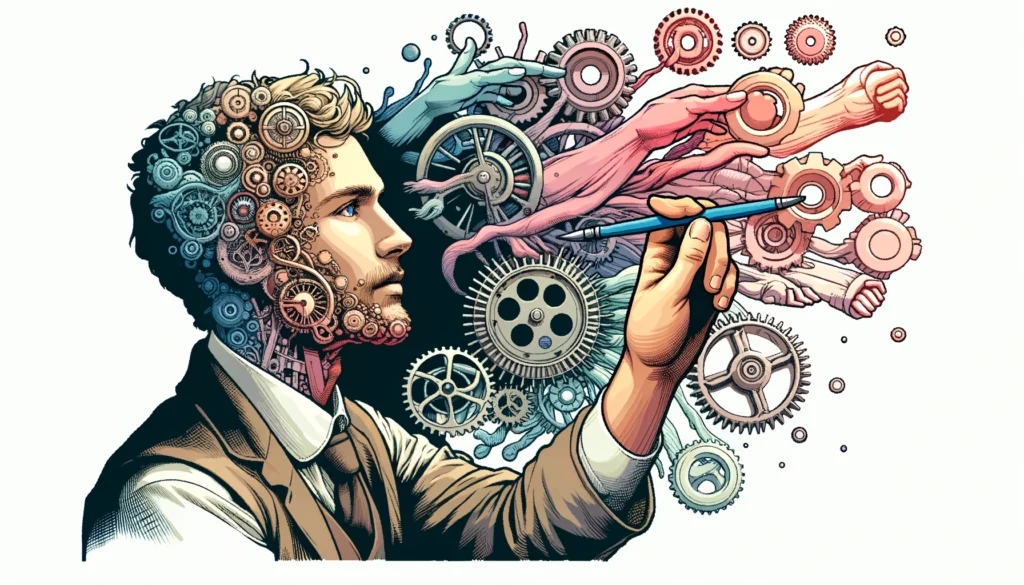
The Dynamic Evolution of Our Industry: Trends, Challenges, and Future Outlook
How Has Your Industry Changed in the Past Five Years?
Over the past five years, our industry has undergone significant transformation. The integration of advanced technologies such as artificial intelligence (AI) and machine learning has streamlined operations and improved efficiency. Additionally, the emphasis on sustainability has led to greener practices, with companies adopting eco-friendly measures to reduce their carbon footprint. Consumer behavior has also shifted, with a growing preference for digital solutions and online services.
Companies have increasingly focused on personalization, leveraging data analytics to offer customized products and services. This shift has been driven by the need to meet the evolving demands of tech-savvy consumers. Moreover, the rise of e-commerce has reshaped traditional business models, pushing companies to innovate continuously to stay competitive.
Regulatory changes have also played a crucial role. New regulations focusing on data privacy and environmental standards have compelled companies to adopt new policies and technologies. These changes, while challenging, have paved the way for more transparent and responsible business practices.
A Leader I Admire and Why
I deeply admire Satya Nadella, the CEO of Microsoft. His visionary leadership has not only revived Microsoft but also positioned it as a leader in cloud computing and AI. Nadella’s focus on fostering a growth mindset and his commitment to diversity and inclusion have set a benchmark for what modern leadership should look like. His ability to drive innovation while maintaining a strong ethical foundation is truly inspiring.
Under Nadella’s leadership, Microsoft has seen tremendous growth and has embraced a culture of continuous learning and improvement. His emphasis on empathy and understanding customer needs has transformed Microsoft’s approach to product development and customer service. Nadella’s journey from an engineer to a CEO embodies the essence of leadership and perseverance.
Emerging Trends in Our Field
One of the most exciting emerging trends in our field is the rise of remote work and hybrid models. This shift has been accelerated by the pandemic and is now becoming a permanent feature. Another trend is the increasing use of big data analytics to drive decision-making processes. Moreover, the Internet of Things (IoT) is connecting devices like never before, creating a more integrated and efficient ecosystem.
Another trend to watch is the growing importance of cybersecurity. As digital transformation accelerates, protecting data and systems from cyber threats has become paramount. Innovations in blockchain technology are also gaining traction, promising enhanced security and transparency across various sectors.
In addition, sustainability is no longer just a buzzword. Companies are increasingly investing in green technologies and sustainable practices. This includes everything from energy-efficient manufacturing processes to the use of renewable energy sources. The rise of circular economy models, which emphasize recycling and reusing resources, is another trend shaping the future of our industry.

Biggest Challenges Facing Our Field Today
Despite the advancements, our industry faces several challenges. One of the biggest is cybersecurity. As we become more digitally connected, the risk of cyber threats increases. Another challenge is the skills gap. There’s a growing need for professionals with expertise in new technologies, yet there’s a shortage of qualified candidates. Additionally, regulatory pressures and the need for sustainable practices are also major concerns.
Moreover, the rapid pace of technological change poses a significant challenge. Keeping up with the latest advancements requires continuous learning and adaptation, which can be daunting for many organizations. The global supply chain disruptions, exacerbated by geopolitical tensions and pandemics, have also highlighted the need for more resilient and flexible supply chain strategies.
Data privacy is another critical issue. As companies collect more data to enhance their services, they must also ensure that they are protecting this data and complying with various privacy regulations. This requires robust data governance frameworks and ongoing investments in security technologies.
Staying Informed About Industry Developments
Staying informed in such a dynamic field requires a proactive approach. I subscribe to industry journals and follow thought leaders on platforms like LinkedIn and Twitter. Attending webinars, conferences, and participating in online forums also helps me stay updated with the latest trends and developments.
Networking with industry peers and joining professional associations can provide valuable insights and opportunities for collaboration. I also make it a point to engage in continuous learning by taking online courses and certifications. This not only keeps my skills up-to-date but also gives me a broader perspective on industry trends.
Reading white papers and case studies from leading organizations helps me understand practical applications of new technologies and methodologies. Additionally, I use tools like RSS feeds and Google Alerts to stay on top of breaking news and emerging trends in our field.
Reflecting on a Team Project That Didn’t Go as Planned
I recall a project where we aimed to implement a new CRM system. Despite thorough planning, the project faced numerous setbacks due to unforeseen technical issues and resistance from the team. This experience taught us the importance of flexibility and effective communication. We learned to adapt quickly and involve all stakeholders in the decision-making process to ensure smoother implementation in the future.
We realized that proper change management is crucial for the success of any project. By engaging team members early on and addressing their concerns, we could have mitigated some of the resistance we faced. Additionally, conducting thorough risk assessments and having contingency plans in place could have helped us navigate the technical challenges more effectively.
This project also highlighted the importance of continuous feedback. Regular check-ins and open communication channels allowed us to identify issues early and make necessary adjustments. While the project did not go as planned, it provided valuable lessons that have improved our approach to subsequent projects.
What Makes a Good Mentor or Leader?
A good mentor or leader is someone who inspires and guides. They possess a deep understanding of the industry and are willing to share their knowledge. Effective mentors listen actively and provide constructive feedback. They are empathetic and supportive, helping their mentees navigate challenges and celebrate successes. Leadership, on the other hand, involves setting a clear vision and motivating the team to achieve common goals.
Great leaders also lead by example. They demonstrate integrity and consistency in their actions, earning the trust and respect of their team. A good mentor is also patient and approachable, creating a safe environment for mentees to learn and grow. By fostering a culture of continuous learning and development, they help their team members reach their full potential.
Moreover, effective leaders are adaptable and open to new ideas. They encourage innovation and are not afraid to take calculated risks. By being receptive to feedback and willing to make necessary changes, they ensure that the team remains dynamic and resilient in the face of challenges.
Essential Skills for Success in Our Industry
To thrive in our industry, one must possess a blend of technical and soft skills. Technical skills like data analysis, coding, and project management are crucial. Equally important are soft skills such as communication, problem-solving, and adaptability. Being able to work collaboratively in a team and having a continuous learning mindset are also essential.
In addition to these skills, creativity and innovation are highly valued. The ability to think outside the box and come up with novel solutions can set you apart in a competitive industry. Strong leadership skills are also important, even for those not in managerial roles. Being able to lead projects and motivate team members is crucial for success.
Emotional intelligence (EQ) is another key skill. Understanding and managing your emotions, as well as empathizing with others, can significantly enhance workplace relationships and team dynamics. Finally, time management and the ability to prioritize tasks effectively are essential in a fast-paced environment.
Culture of Our Workplace
Our workplace culture is defined by collaboration and innovation. We believe in fostering a supportive environment where every team member feels valued and empowered. Continuous learning and development are encouraged, and there’s a strong emphasis on work-life balance. Our culture promotes diversity and inclusion, ensuring that different perspectives are respected and embraced.
We also prioritize open communication and transparency. Regular team meetings and feedback sessions allow us to stay aligned and address any issues promptly. Our flat organizational structure encourages everyone to share their ideas and contribute to decision-making processes. This collaborative approach fosters a sense of ownership and accountability among team members.
Celebrating achievements and recognizing contributions is another important aspect of our culture. We believe that acknowledging hard work and success motivates employees and strengthens team spirit. Our focus on employee well-being, through initiatives like flexible working hours and wellness programs, ensures that our team remains happy and productive.
If I Could Change One Thing About My Work Environment
If I could change one thing, it would be to enhance flexibility in terms of work hours and locations. While we’ve adapted well to remote work, having more flexible options would further improve work-life balance and increase productivity. Creating more opportunities for team-building activities would also strengthen our camaraderie and collaboration.
Flexibility not only boosts employee satisfaction but also attracts a diverse talent pool. By offering options like flexible scheduling and remote work, we can accommodate different working styles and life situations, making our workplace more inclusive. Additionally, investing in ergonomic workspaces and cutting-edge technology can enhance the remote working experience.
Implementing a policy that encourages regular breaks and promotes mental health would also be beneficial. Providing access to resources like counseling services and mindfulness programs can help employees manage stress and maintain a healthy work-life balance. By prioritizing employee well-being, we can create a more positive and productive work environment.
Imagining a New Product or Service for Our Industry
Imagine a smart assistant tailored for our industry that leverages AI to automate routine tasks, provide real-time insights, and enhance decision-making processes. This assistant could revolutionize the way we work by freeing up time for more strategic activities and improving overall efficiency.
This AI-driven assistant could integrate seamlessly with existing systems, offering personalized recommendations based on data analysis. It could help with everything from scheduling meetings and managing emails to analyzing market trends and generating reports. By learning from user interactions, it would continuously improve its performance and adapt to changing needs.
Additionally, this assistant could have voice recognition capabilities, allowing users to interact with it through natural language commands. Its ability to provide instant access to information and streamline workflows would make it an indispensable tool for professionals in our industry. By reducing the time spent on administrative tasks, it would enable us to focus more on innovation and growth.
The Role of Innovation in My Job
Innovation is at the heart of my job. It involves continuously seeking new ways to improve processes, products, and services. By embracing cutting-edge technologies and encouraging creative thinking, we can stay ahead of the competition and deliver exceptional value to our clients.
In my role, I prioritize research and development to explore new possibilities and drive technological advancements. This includes staying abreast of the latest industry trends and experimenting with innovative solutions. Collaborating with cross-functional teams and fostering a culture of open innovation helps us generate fresh ideas and bring them to life.
Innovation also means being customer-centric. By understanding our clients’ needs and pain points, we can develop solutions that truly address their challenges and exceed their expectations. Whether it’s through product enhancements or new service offerings, our commitment to innovation ensures that we remain relevant and competitive in a rapidly evolving industry.
A Policy I Would Implement at Work and Why
I would implement a policy that encourages continuous professional development. This could include regular training sessions, access to online courses, and opportunities for certifications. Investing in our team’s growth not only enhances their skills but also drives the company forward by fostering a culture of continuous improvement.
Providing a structured learning and development program would ensure that employees have the resources and support they need to advance their careers. This policy would also include mentorship programs, where experienced team members can guide and support their colleagues. By promoting a culture of knowledge sharing and growth, we can create a more engaged and motivated workforce.
Additionally, offering tuition reimbursement for relevant courses and encouraging attendance at industry conferences would further support professional development. By recognizing and rewarding employees’ efforts to enhance their skills, we can create a culture that values continuous learning and drives long-term success.
Ethical Considerations in Our Profession
Ethics play a crucial role in our profession. We must ensure data privacy and security while handling sensitive information. Transparency in communication and fair practices in business dealings are also paramount. By adhering to strong ethical standards, we build trust with our clients and maintain our reputation in the industry.
One of the key ethical considerations is the responsible use of technology. As we develop and implement new technologies, we must consider their potential impact on society and ensure they are used for the greater good. This includes addressing issues related to bias in AI algorithms and ensuring that our products and services do not perpetuate discrimination or inequality.
Additionally, we must be mindful of environmental sustainability. By adopting eco-friendly practices and minimizing our carbon footprint, we can contribute to a healthier planet. Ethical business practices also involve fair treatment of employees, ensuring that they work in a safe and inclusive environment where their rights are respected.
Conclusion
In conclusion, the evolution of our industry over the past five years has been marked by significant technological advancements and shifting consumer behaviors. Despite the challenges we face, the future holds promising opportunities driven by emerging trends and continuous innovation. By staying informed, fostering a positive workplace culture, and adhering to ethical standards, we can navigate this dynamic landscape successfully.
Read More About Industry Insights and Trends Here.WA





